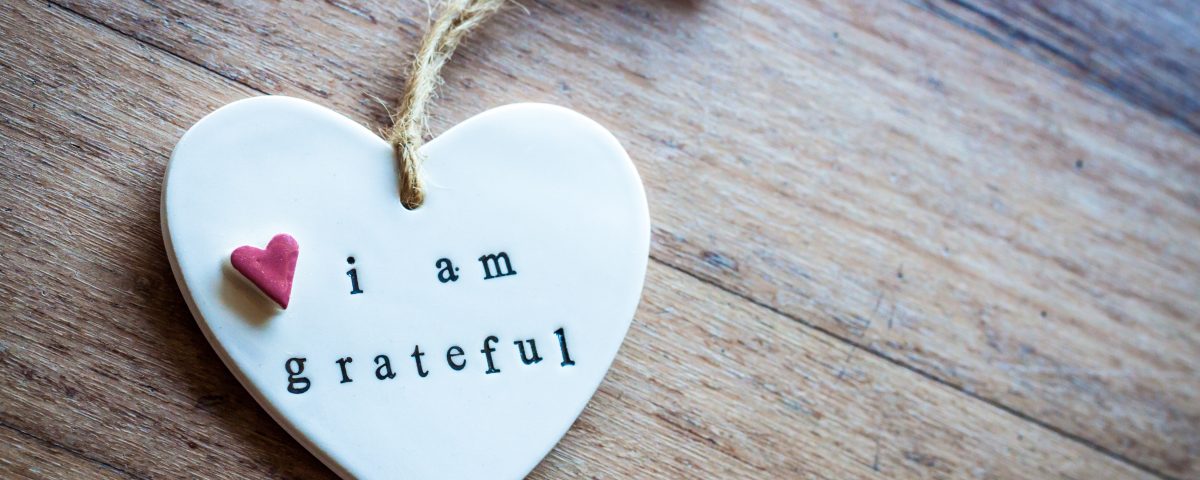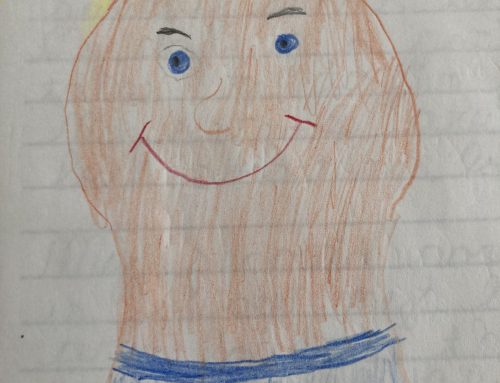There isn’t a person reading this that doesn’t secretly want more. You probably wouldn’t say it out loud, but it’s true. It’s one of the fundamental characteristics of who we are. I believe that we have that desire for more not because we are greedy or bad people but because it was put there by God.
I also believe God wants to give you more in your life. Jesus said that the whole reason he came was to give us life to the fullest extent. He refers to it as abundant life. Over and over God tells us his heart is to bless us. We want more. God wants to give us more. What’s the problem here?
I believe there is one mistake that can keep us from the more we are searching for that maybe you haven’t thought of. In fact, in this one area, if we don’t get our act together we can disqualify ourselves from getting the more we seek, even if we are seeking the right more.
We disqualify ourselves from more when we aren’t grateful for the more we already have.
I honestly believe that ingratitude disqualifies us from getting more from God. You may or may not agree with me, but if I’m right we are all in trouble. Generally, as a culture, we aren’t great at gratitude.
In the book The Gratitude Diaries by Janice Kaplan the author gives a few stats on the state of gratitude in our country.
The survey I had recently done, funded by the John Templeton Foundation, had shown that most of us suffer from a huge gratitude gap. We know we should be grateful, but something holds us back. In the survey, 94 percent of Americans thought people who are grateful are also more fulfilled and lead richer lives. But less than half the people surveyed said they expressed gratitude on any regular basis.
Gratitude is not generally in our wheelhouse.
Which of the following statements are you more likely to make?
My car is running great right now!
My car just broke down!
I’m so glad my boss employees me!
My boss is a huge jerk.
My head is clear and pain free!
I have a headache.
Thank you God for hot water!
My hot water heater exploded!
My intestinal track is working flawlessly today.
My stomach hurts!
It seems to me that we have programmed ourselves to find the negative.
Honestly, if nine good things happen to you in a day and one negative, what are you most likely to share with your friend at dinner that night? Generally it’s the negative because that’s the way our culture works. Unfortunately searching for the negative can effect the amount of happiness we feel in life.
On the other hand, gratitude is important to God. If you look through the Old Testament you will find story after story of the people of Israel getting blessed by God. Rarely, however, are they grateful. Because of this they miss out on so much God has to offer. God made that pretty clear in his words to Israel in Deuteronomy 28
“Because you did not serve the Lord your God with joy and a glad heart, for the abundance of all things; therefore you shall serve your enemies whom the Lord will send against you, in hunger, in thirst, in nakedness, and in the lack of all things.” Deuteronomy 28:47,48
Ingratitude disqualifies us from the more God wants to give us. I’m guessing that might seem wrong to some people. God is cast as a vindictive, punitive deity. However, I believe that it is understandable for God to hold back from people who are ungrateful.
The author of The Gratitude Diaries did a focus group with different ages to discuss the findings of her gratitude research. Older groups got excited about the potential of gratitude to change their lives but younger groups didn’t share their enthusiasm. Let me read you a sampling.
“College-age kids (and those in their early twenties, just starting careers) were struggling so hard to define themselves that they couldn’t look beyond their own shadows. Many seemed almost offended by the whole concept of gratitude. “I hate that feeling of I owe you something,” said Greg, a twenty-two-year-old living in Boulder, Colorado, who took part in one of the discussions. “I don’t like receiving gifts or acts of kindness, because they just make me feel awkward.”
One young woman literally wrinkled her nose when asked about being grateful to her family.
“I can be grateful to the counter guy at the deli, maybe. But my parents are just doing what nature intended. Even chimps take care of their children.”
The kids in the focus groups were still at an age where they needed parental help, but they wanted to pretend they didn’t. Greg said that when he couldn’t afford an apartment, his dad offered to pay the security deposit. “I didn’t like it because the whole point was to live on my own. I took the money, but only with spite,” he said.
I’m not quoting this to take a shot at millennials. I am privileged to work with some of the most grateful, capable people who fit this category. I don’t tag them millennials and they look the other way at my dad jokes. Here’s my point.
Let’s just say that Greg was your child. He can’t get into an apartment so you generously offer to pay for the security deposit. How would your attitude change about little Greggie if you found out that his attitude was, “I’ll take your money but I’ll only do it with spite.” Would you be to Venmo little Greggie money next time he gets in trouble? How excited would you be to help him pay for a new transmission? If little Greggie was my kid the bank would be closed.
What if your daughter was willing to thank the guy at the deli counter for the pastrami sandwich but didn’t want to thank you for paying for college? I mean even chimps take care of their young. Any interest in getter her a ticket to fly abroad after graduation or taking her to Lululemon for a shopping spree? Sorry honey. Dad’s done footing the bill for you.
Ingratitude disqualifies us from getting more. It’s just the way the world was designed to work.
If you’re ungrateful to parents they stop sending money. Stop saying thank you for a clean house and your spouse stops vacuuming the carpet. Don’t say thank you for a pay raise and see how your next review goes.
If you are ungrateful to God, guess what? Don’t be surprised if the blessings stop flowing. That’s just the way it works. It happened to the people of Israel, it can happen to you.
If you want more, be grateful for the more you already have.
The bible has plenty of bad examples of ingratitude, but it also has some excellent examples of people who were grateful for what they got. In the New Testament, Paul is an example of someone who thanked God in all circumstances. (Thanks be to God, who delivers me through Jesus Christ our Lord! Romans 7:25) Daniel is a good example of gratitude. (He got down on his knees three times a day and prayed and gave thanks before his God. Daniel 6:10)
In the Bible there is one character who’s defining characteristic is gratitude. His name is David. I know you’ve heard of him. He slayed the giant Goliath then became king of Israel. He met a girl named Bathsheba on Tinder. That was a mistake. It is not unreasonable to think that the defining characteristic of David’s life is gratitude.
Here’s how I came to that conclusion. I did some word searches through the book of Psalms that David authored for words that express gratitude. This is what I found. When you add up all the words of gratitude including thanksgiving, joy, rejoice, glad, sing, praise, exalt David uses over 600 words of gratitude. He’s a thanksgiving thesaurus.
Based on a simple a word count, the defining characteristic of David is gratitude. In fact, I get the sense a little when I read this that it might get a little annoying hanging out with David. He’d be the guy that when you ask him how he’s doing every morning he says “Too blessed to be stressed.” You know that guy? “How’s your day?” “Just another slice of paradise. If I was doing any better I’d have to be two people.”
We might get irritated with his Pollyanna attitude, but God didn’t. He is called a man after Gods own heart and 14 times when Jesus is described in the gospels he is referred to as The Son of David.
God liked this guy. I think the reason he liked this guy so much is because he couldn’t open his mouth without giving thanks to God. There may be some people who look at David’s life and say, “Sure he was grateful. David had everything. He was king. David had access to all the money of Israel. He was famous. David lacked for nothing. Of course he was grateful.” Listen, what makes gratitude the defining characteristic of David’s life is that he was grateful all the time. No matter what was going on.
Listen to the words that came out of David’s mouth when life was at it’s very worst.
Taste and see that the Lord is good; blessed is the one who takes refuge in him.
That’s from Psalm 34. It was written when David was on the run from king Saul who was trying to kill him and he pretended to be insane in front of Abimilek.
I will present my thank offerings to you. For you have delivered me from death and my feet from stumbling, that I may walk before God in the light of life.
That’s Psalm 56. When the Philistines seized him in Gath.
On my bed I remember you; I think of you through the watches of the night. Because you are my help, I sing in the shadow of your wings.
That’s Psalm 63 when David was in the desert of Judah. It’s kind of like Lancaster. I think he was at a softball tournament.
You, Lord, are a shield around me, my glory, the One who lifts my head high.
That’s Psalm 3. He wrote that when he was fleeing his son Absalom. Absalom wanted to be king so he sought to kill his own father and in the midst of that trial David called God, “The One who lifts my head high.”
Gratitude can reprogram your brain. Choosing gratitude also has amazing health benefits. In an article in Psychology Today called, The Grateful Brain, The Neuroscience of Giving Thanks, Alex Korb states that “studies indicate that young adults assigned to keep gratitude journals showed greater increases in determination, attention, enthusiasm and energy compared to the other groups. Studies also reveal that keeping a gratitude journal caused greater improvements in exercise patterns.
“Gratitude also caused a reduction in physical ailments, so these subjects had fewer aches and pains.”
They found that higher levels of gratitude were associated with better sleep, and with lower anxiety and depression.
An article in the Journal of Social and Clinical Psychology evaluating all the literature in the field concluded that…
Gratitude may have the highest connection to mental health and happiness of any of the personality traits studied.
The conclusion: “Around 18.5 per cent of individual differences in people’s happiness could be predicted by the amount of gratitude they feel.”
Think about that for a second. If you’re getting a C in life right now, you’re hovering right around 75%. If you add gratitude to your life that bumps you up 18.5% and that’s a solid A.
Here’s my challenge. Make a gratitude list. Start off simple with a sunset or the fact that you have a warm bed. Write down something great that happened with your kids. Celebrate a work triumph. If we make this a habit I believe your attitude and my attitude will start to change.
Not only that, but I firmly believe that sharing your gratitude for all God has done for you qualifies you for blessing. Let’s stop being God’s entitled kids. Let’s be God’s grateful kids. Gratitude is your superpower.









Leave A Comment